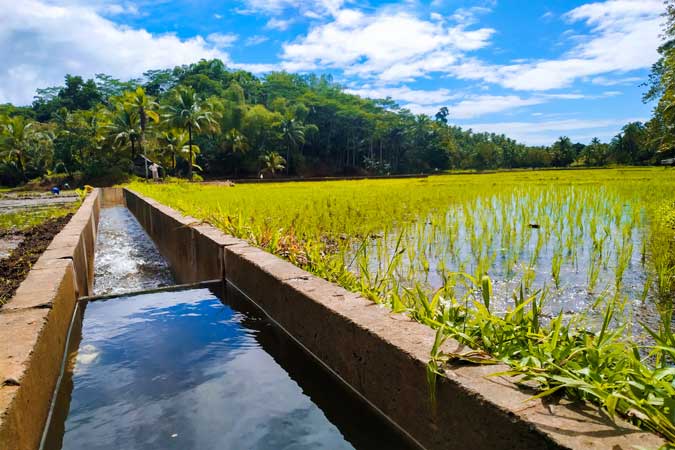
THE PHILIPPINE agriculture and food industries will play an important role in the economic recovery, according to a report by Oxford Economics.
Food Industry Asia, which commissioned the Oxford Economics study, said in a statement Thursday that the Philippine agri-food sector will create employment and provide food for consumers at stable prices, but still runs the risk of supply and demand disruptions during a drawn-out pandemic.
“In 2019, the agri-food sector in the Philippines made a gross domestic product (GDP) contribution of P6.1 trillion, which marked a 16% increase from 2015. The sector is also responsible for 42.7% of the workforce with 18 million jobs, making it the single most critical source of employment in the economy. The sector also contributed a total of P829.5 billion in tax revenue,” the report said.
The report identified a key driver of the agri-food sector to be food and beverage manufacturing, which accounts for 46% of the sector’s contribution to GDP.
“The sector was impacted by the disruptions coming from the COVID-19 pandemic, seeing a 4% contraction in 2020, or a P262.1 billion drop in GDP contribution. However, the scale of this impact was considerably smaller than what the economy endured as a whole, highlighting the essential nature of agri-food production and distribution,” according to the report.
“The Philippines showed important vulnerabilities due to its dependence on tourism to revive its food industry. It placed second worst across 10 countries when it comes to the sector’s expected economic recovery,” it added.
Elizabeth M. de Leon-Lim, Philippine Chamber of Food Manufacturers, Inc. chairman and president, said the agri-food industry needs to work closely with the government to explore other ways to thrive despite the pandemic, as demand from international tourism remains uncertain.
“With the agri-food industry being instrumental to the national economy, it is critical that both the industry and the public sector come together to sustain and uplift the agri-food sector as we move forward into the rest of this year,” Ms. De Leon-Lim said.
James Lambert, Oxford Economics director of Economic Consulting Asia, said fiscal adjustments can be made to deal with potential risks to the recovery of the sector and the country’s economy, such as lowering public expenditure or increasing tax revenues.
“As the Philippines looks to emerge from the pandemic stronger, it is important that policymakers provide the most conducive conditions for the agri-food industry to successfully rebuild itself, and that any fiscal policy implemented is carefully planned, designed, and communicated. That will allow the industry to continue to provide the economic benefits it has delivered over recent decades,” Mr. Lambert said.
The Philippines was deemed among the most vulnerable in Asia to fiscal adjustments after the pandemic, which means that poorly-executed fiscal responses can potentially harm the recovery of the agri-food sector, and consequently the economic recovery.
“The report recommends that for governments to develop successful fiscal responses that do not inhibit the recovery of the agri-food industry, three conditions need to be met: using education to influence behavior; favoring regulatory standards over taxes; and maintaining a constant conversation with the industry,” it said. — Revin Mikhael D. Ochave



